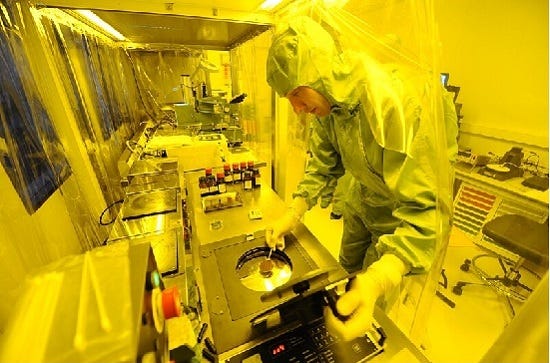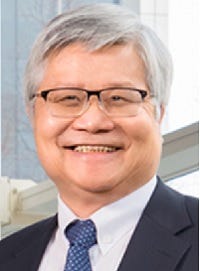US Effort to Make More Semiconductor Chips At Home Gets Off the Ground
The Biden Administration’s CHIPS Act provided $53 billion, so far funding efforts from three companies; incoming President Trump not seen as cutting it back, despite campaign rhetoric
By John P. Desmond, Editor, AI in Business

The US is pursuing advanced chip making on its own soil in the search for a more diversified sourcing and less dependency on one company, TSMC of Taiwan.
The Biden Administration signed the Chips and Science Act with bipartisan support in August 2022, committing to a $53 billion investment in domestic semiconductor manufacturing and research, as reported in a recent account from CNBC. While Donald Trump in October was critical of the legislation, he is not expected to roll back its provisions. That notion was seconded by Chris Miller, author of the book, “Chip War,” who stated before the election that he sees semiconductor manufacturing investment remaining a priority for whoever prevailed.
Since its passage, two Asian chipmakers have committed to building facilities in the US and have received support from the Chips Act. Taiwan Semiconductor Manufacturing Company (TSMC), was offered $6.6 billion, and Samsung was offered $6.4 billion. The largest offer was made to US chipmaker Intel, receiving an $8.5 billion offer, although recent sparring between the Biden Administration and Intel may threaten some of that.
(On Monday, December 2, Intel announced that CEO Pat Gelsinger has retired. Two executives were named co-chief executives, and the company announced the onset of a CEO search. Subsequent reporting suggested that Geisinger was forced out by the Intel board, which had lost confidence in his strategy to bring the company forward.)
Gina Raimondo, secretary of commerce in the Biden Administration, had set a goal for the US to manufacture a fifth of the world’s advanced logic chips by 2030. With TSMC and Samsung facilities experiencing delays, and Intel seeing some financial struggles. Raimondo sees that the US might need to pass a second CHIPS Act to meet the goal, according to the CNBC account.
Investments by China in its domestic advanced chip manufacturing are estimated to be in the $150 billion range, according to a recent account in Wired, a number which could get attention. “I think Congress is going to look at the international environment,” stated Miller, who is a professor at the Fletcher School at Tufts University as well as a book author. “China is already at the equivalent of CHIPS Act 5 or 6.”
Also, Miller sees the investments as serving as “insurance” if anything goes wrong in the Taiwan Straits that threatens production at TSMC in South Korea. If that happened, “the cost to the world economy would be in the trillions of dollars of disruption to world manufacturing,” he stated. “And that’s not an overestimate. That’s the estimate.”
Meanwhile, Intel’s new factory is under construction in Ohio. The promise is 3,000 high-end jobs at the “fabs” - semiconductor manufacturing plants - and 7,000 construction jobs to build them, according to the Wired account. Intel has reported filling 2,300 construction jobs so far, and because no fabs are up and running yet, fewer than 100 manufacturing jobs.
In January 2022, Intel committed to an investment of $100 billion in the state to build eight fabs, making it one of the largest microchip manufacturing sites in the world.
AI Helping To Drive Advanced Chip Demand
Driving the demand for chips is the move to AI, a demand that exceeds the production capacity of current chipmakers. At an industry event in San Jose in February, Intel CEO Pat Gelsinger and OpenAI CEO Sam Altman shared the stage for a time. Nvidia had just announced its revenue for the November to January period had nearly quadrupled from the previous year. “The world is going to need a lot more AI compute,” stated Altman, in an account from AP.
Altman also stated, “We are heading to a world where more content is going to be generated by AI than content generated by humans. This is not going to be only a good story, but it’s going to be a net good story.” (And as ex-Massachusetts Gov. Deval Patrick said about GBH radio host Jim Braude, “He’s sometimes wrong, but never in doubt.”)
Geisinger predicted that by 2030, Intel would be overseeing the second largest advanced chipmaking business in the world, behind TSMC, largely by meeting demand for AI chips. “There’s sort of a space race going on,” he stated. “The overall demand [for AI chips] appears to be insatiable for several years into the future.”
Commerce Secretary Raimondo, in a video appearance at the San Jose conference, said recent discussions with Altman and other executives at the forefront of the move to AI gave her an appreciation for their projected chip demands. “The volume of chips they say they need is mind-boggling,” Raimondo stated.
TSMC Phoenix Chip Plant Producing Chips Now, and Getting High Marks
In May 2020, TSMC announced plans to build a chip plant in Phoenix. The company acquired land and started construction in June 2021. The plant has started to produce chips. Rick Cassidy, president of TSMC’s US division, announced in October that usable yields registered four percentage points higher than comparable facilities in Taiwan, according to an account from Bloomberg.
On a recent call with investors, TSMC Chief Executive Officer C.C. Wei stated, “Our first fab entered engineering wafer production in April with 4-nanometer process technology, and the result is highly satisfactory, with a very good yield. This is an important operational milestone for TSMC and our customers, demonstrating TSMC’s strong manufacturing capability and execution.”
TMSC plans to invest $100 billion over three years to increase its plant capacity.
Meanwhile, Crackdown on China’s Semiconductor Industry
Meanwhile, the US on December 2 launched its third crackdown in three years on China’s semiconductor industry, limiting exports to 140 companies, in an effort to hobble the chipmaking ambitions of Beijing, according to a report from Reuters.
Commerce Secretary Raimondo said the actions are aimed at preventing “China from advancing its domestic semiconductor manufacturing system, which it will use to support its military modernization.”
The package includes curbs on shipment bound for China on high-bandwidth memory chips critical for high-end application including AI training, new curbs on 24 additional chipmaking tools and three software tools, and new export curbs on chipmaking equipment made in Singapore and Malaysia.
Commenting on the new restrictions, Chinese foreign ministry spokesman Lin Jian was quoted by Reuters as stating that the US is undermining the international economic trade order and disrupting global supply chains. He said China will take measures to safeguard its rights and interests of its firms.
AI chips are a tiny fraction of all chips sold in 2022, according to an account on the blog of Lennart Heim, a researcher at RAND, posted at XYZ. He estimates Nvidia sold 80 to 95 percent of 7 nanometer (nm) AI accelerator chips supplied in 2022, and that would be less than 3 million chips. TSMC, by contrast, he estimates produces an average of 333 million 7nm chips annually.
Read the source articles and information from CNBC, Wired, AP. Bloomberg, Reuters and from Lennart Heim’s blog at XYZ.






